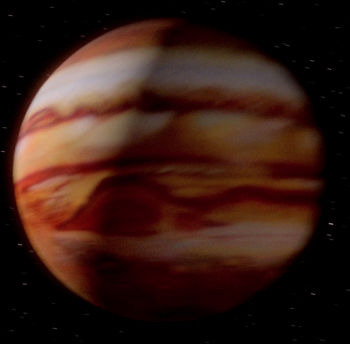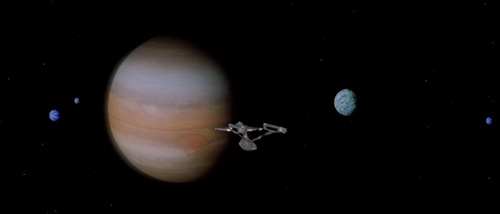Difference between revisions of "Jupiter (FASA)"
From Trekipedia
m |
m |
||
| Line 3: | Line 3: | ||
{{TableRow|title=Coordinates|data=23.9, 61.8, 0.0<ref name="Maps"/>}} | {{TableRow|title=Coordinates|data=23.9, 61.8, 0.0<ref name="Maps"/>}} | ||
{{TableRow|title=Affiliation|data=[[United Federation of Planets]]<ref name="TOS00"/>}} | {{TableRow|title=Affiliation|data=[[United Federation of Planets]]<ref name="TOS00"/>}} | ||
| − | {{TableRow|title=Satellites|data=18 moons,<ref name="WoF"/> including [[#Galilean_Moons|Galilean moons]]: Io (Sol Va), [[Europa (FASA)|Europa]] (Sol Vb), Ganymede (Sol Vc), Callisto (Sol Vd)}} | + | {{TableRow|title=Satellites|data=18 moons,<ref name="WoF"/> including [[#Galilean_Moons|Galilean moons]]: Io (Sol Va), [[Europa (FASA)|Europa]] (Sol Vb), [[Ganymede (FASA)|Ganymede]] (Sol Vc), Callisto (Sol Vd)}} |
{{TableRow|title=Advertising|data={{AmazonLink2}} {{AmazonLinkFASA2011}} }} | {{TableRow|title=Advertising|data={{AmazonLink2}} {{AmazonLinkFASA2011}} }} | ||
|}</div> | |}</div> | ||
Revision as of 11:35, 23 April 2021
Myriad Universes: Jupiter
Jupiter
| Coordinates | 23.9, 61.8, 0.0[1] |
| Affiliation | United Federation of Planets[2] |
| Satellites | 18 moons,[3] including Galilean moons: Io (Sol Va), Europa (Sol Vb), Ganymede (Sol Vc), Callisto (Sol Vd) |
| Advertising |
A Class A planet,[3] Jupiter was the largest planet in the Sol system, and orbits fifth from its parent star.[4] Although Jupiter, being a gas giant, was uninhabitable by humanoid life, its four largest moons, known as the Galilean moons, were colonized by Humans.[5]
Jupiter and moons (ST01)
Jupiter roils with constant storms, the most famous of which, the Great Red Spot, remains one of the planet's most popular sightseeing destinations. The Great Red Spot was still going strong well into the 23rd century.[6]
Notes and References
- ↑ Maynard, Jeff (Author). Star Trek Maps. Star Trek. Book. Bantam Books. August 1980.
- ↑ Template:RefTOS00
- ↑ 3.0 3.1 Johnson, Shane. Star Trek: The Worlds of the Federation. Pocket Books, 1989.
- ↑ Roddenberry, Gene (Executive Producer). "The Changeling." Star Trek, Season 2, Episode 8. Directed by Marc Daniels. Written by John Meredyth Lucas. Desilu Productions, 29 September 1967.
- ↑ Menke, Bernard Edward and Rick David Stuart (Authors). The Federation. Star Trek: The Role Playing Game. Book 2011. Cover art by David R. Deitrick. Illustrations by Todd F. Marsh, John C. Tylk, Bob Eggleton, Daniel E. Carroll, and Jay Harris. FASA Corporation. 1986.
- ↑ Roddenberry, Gene (Producer). Star Trek: The Motion Picture. Directed by Robert Wise. Story by Alan Dean Foster. Screenplay by Harold Livingston. Paramount Pictures. 7 December 1979.



